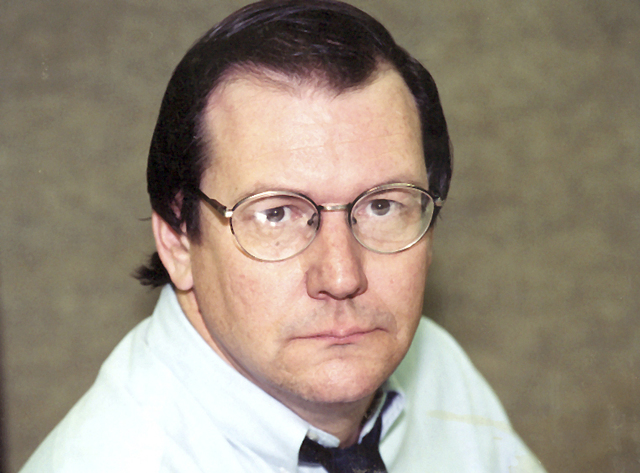
There’s a product at McDonald’s fast food restaurants that I sometimes order. The clerk will ask me, “Would you like a medium or large?”
I reply, “A small, please.”
This will inevitably cause confusion to appear on the clerk’s face, followed by the response, “We only have medium or large.”
I, in turn, reply, “If you only have two sizes, then you don’t HAVE a medium.”
These clerks are all at least high school age, which always makes me wonder why they do not grasp the concept of something like “medium.”
Then, last week the “president” of the United States explained that he would make Mexico pay for a wall between the United States and Mexico by imposing an import tax on Mexican goods. How he is going to get Mexico to pay for the wall by making U.S. citizens pay more taxes was not explained. Maybe Trump is one of those people who doesn’t understand the difference between convex and concave, reverse and obverse, import and export.
At any rate, when the president of Mexico said he would not show up to a planned meeting with Trump, Trump tried to portray it as a mutual decision, rather like someone who has been left standing at the altar has just experienced a mutual decision.
I have always understood that McDonald’s is trying through the use of deceptive language to give customers the impression that they are getting more than they think they are ordering or something, but what I don’t understand is how its own clerks get taken in by the ruse.
This week I read in the Washington Post that when some Trump supporters were given aerial photos of the capital mall during the Obama and Trump inaugurals, which plainly show more people attending the Obama ceremony, some Trump supporters said they saw more people in the Trump photo.
The Post went on, “Even when the photographic evidence was directly in front of them and the question was straightforward, one in seven Trump supporters gave the clearly false answer. Why would anyone give the wrong answer to a pretty simple question? To many political psychologists, this exercise will be familiar. A growing body of research documents show how fully Americans appear to hold biased positions about basic political facts. But scholars also debate whether partisans actually believe the misinformation and how many are knowingly giving the wrong answer to support their partisan team (a process called expressive responding).”
There are better names for it. Fooling ourselves might be one. But a more interesting question is why we are so willing to let ourselves by manipulated by politicians in an age when most people do not identify with political parties and think partisan polarization is foolish? Why, then, do we pitch in to help the politicians?
Okay, we sometimes fool ourselves. And while that might make a certain silly sense in the case of allying ourselves with our employers or the Cubs or the cars we drive or some other alliance that we truly embrace, why do it in the name of politics, for people that surveys say we really don’t respect?
“Woe unto them that call evil good, and good evil; that put darkness for light, and light for darkness; that put bitter for sweet, and sweet for bitter!” Isaiah said. After the comparison photos of the Obama and Trump inaugurals came out, Trump pressured the National Park Service to come up with additional photos of the mall crowds, apparently hoping that they would produce photos that put him in a better light.
The way Trump sees reality through lenses of his own needs recalls the way President Reagan saw things in movies and later told people – apparently sincerely – that they happened to him. I once asked Reagan biographer Lou Cannon if we should be alarmed about a president that out of touch with reality. He asked if we can be retroactively alarmed. It’s not looking all that retroactive these days.
It is fair to ask why a president is spending time on vanity measures like photos of his inaugural. It is also fair to ask, if a president is willing to pressure a federal agency for better PR measures to reshape reality, wouldn’t he also be willing to pressure federal agencies to, say, come up with “evidence” with which he could take us into an unnecessary war – evidence of WMDs, for instance?
After all, it has happened before.
Dennis Myers is an award-winning journalist who has reported on Nevada’s capital, government and politics for several decades. He has also served as Nevada’s chief deputy secretary of state.